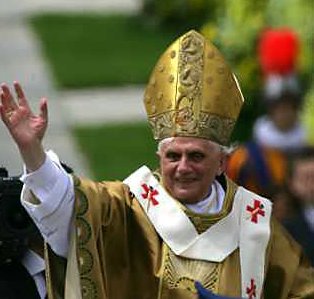Charles Stuart, King and Martyr

Today the Church of England and Anglo-Catholics everywhere keep the Feast of the Blessed Martyr, Charles Stuart.
As an anointed Monarch, Charles thought himself well within his rights in his expectation that his subjects, common and noble alike, would give him loving obedience in his acts of government. Sadly, Charles was much disappointed in his people. They rebelled against his legitimate government, deposed him, proclaimed a republic, tried him for treason, and in an act of savage ingratitude struck off his head.
The republic did not last and due to God's mercy the monarchy was restored. Apparently the English prefer a Monarch, whatever his shortcomings, to pious upstarts, no matter how effective, or corrupt they may be. Stuarts, or Stuart surrogates occupy the Throne to this very day.
Eventually recognized as a martyr--not unlike his predecessor, Mary Stuart, Queen of Scots, in another context--Charles has enjoyed the high esteem of the Anglo-Catholic Party from the time of his tragic death right up to the present. Unfortunately, Roman Catholics have been a bit more reticent to promote Mary's Cause in Rome.
The currently accepted collect for the Feast reads:
King of kings and Lord of lords, whose faithful servant Charles prayed for those who persecuted him and died in the living hope of your eternal kingdom: grant us by your grace so to follow his example that we may love and bless our enemies, through the intercession of your Son, our Lord Jesus Christ, who lives and reigns with you, in the unity of the Holy Spirit, one God, now and for ever.
It is completely reasonable to hold that the cult of such Royal Martyrs is a bit silly. Always very difficult to say if such deaths are caused by the single hearted adherence to the Faith of Christ, or are the result of much more murky political expediencies. The sure lesson that we should learn from our martyrs is that loyalty, generosity, and courage are worth living for, even if one doesn't quite achieve them in this life. The second lesson, just as valuable really, is that it just cannot be God's will that the state, or any one, strike the heads off of the inconvenient. There has to be a better way. Injustice will be discovered, even if it may result in the cult of new martyrs.
Let us pray that Charles, and Mary, and Nicholas, and all the martyrs will interceed for us in this life, and welcome us into the Feast of Heaven.






